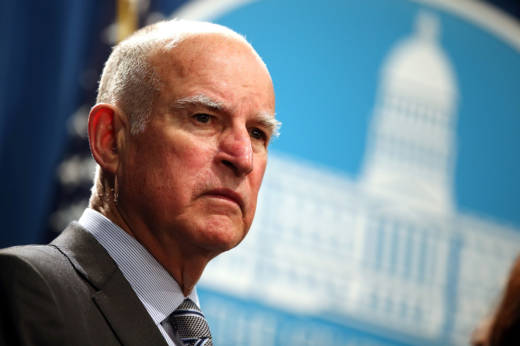In an attempt to make California more relevant in presidential primaries, Gov. Jerry Brown signed legislation Wednesday that will move the state's June primary to March.
The change is likely to make California among the first handful of states to weigh in on the 2020 presidential race.
“The intent of the bill was to put our voters at the front seat in choosing the next president and helping us drive a different agenda at the national level," said Sen. Ricardo Lara, D-Bell Gardens, who carried the early-primary legislation.
In years past, presidential candidates have largely ignored deep-blue California, where it's incredibly expensive to campaign because of the sheer size of the state and its huge population.
Proponents of Senate Bill 568 argued that issues crucial to both California and the nation -- including immigration, climate change and criminal justice reform -- were ignored by candidates of both parties in 2016.
